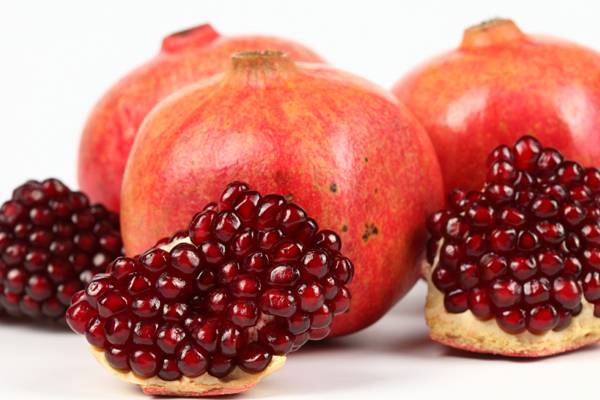Eating pomegranate seeds side effects
Pomegranates, renowned for their juicy, vibrant arils, have long held a special place in the realm of health-conscious individuals and culinary enthusiasts alike. With their rich history and nutritional benefits, pomegranate seeds have become a popular choice for snacking, garnishing, and incorporating into various dishes. However, like any other food, even these luscious seeds may have potential side effects that deserve attention and consideration.

Nutritional Profile of Pomegranate Seeds
Before delving into the potential side effects, it’s important to highlight the nutritional value of pomegranate seeds. These tiny, ruby-red jewels are packed with a plethora of essential nutrients, including dietary fiber, vitamins (such as vitamin C, vitamin K, and several B vitamins), and minerals (such as potassium and copper). They also boast powerful antioxidants like punicalagins and anthocyanins, which contribute to their potential health benefits.
Potential Side Effects
- Allergic Reactions: While rare, some individuals may experience allergic reactions to pomegranate seeds. Symptoms could range from mild skin irritation to more severe reactions like difficulty breathing and anaphylaxis. If you’re prone to allergies or have experienced reactions to other fruits, it’s advisable to exercise caution and consult a healthcare professional before consuming pomegranate seeds.
- Digestive Discomfort: Pomegranate seeds are a rich source of dietary fiber, which aids in digestion and promotes gut health. However, consuming too many seeds in a short period might lead to digestive discomfort, including bloating, gas, or diarrhea. Gradually incorporating pomegranate seeds into your diet and consuming them in moderation can help prevent such issues.
- Interaction with Medications: Pomegranate seeds and their juice contain compounds that can interact with certain medications, potentially affecting their efficacy or causing adverse effects. Individuals taking blood pressure medications, blood thinners, or medications for heart conditions should consult their healthcare provider before consuming pomegranate seeds to avoid potential interactions.
- Sugar Content: While pomegranate seeds offer natural sweetness, they also contain natural sugars. Overconsumption of sugary foods can contribute to weight gain and fluctuations in blood sugar levels. Monitoring your intake and balancing it with a well-rounded diet is essential, especially for individuals with diabetes or those watching their sugar intake.
- Oxalate Content: Pomegranate seeds contain oxalates, which are compounds that can contribute to the formation of kidney stones in susceptible individuals. If you have a history of kidney stones or are prone to developing them, it’s wise to moderate your pomegranate seed consumption and consult a healthcare professional for guidance.
6. Fertility and Pregnancy Considerations:
There is limited research on the effects of pomegranate seeds during pregnancy and on fertility. While pomegranates are a source of beneficial nutrients, pregnant individuals should exercise caution and consult their healthcare provider before consuming pomegranate seeds. Some studies suggest that pomegranate extract may have potential benefits for fertility, but more research is needed to fully understand its impact.
7. Dental Health:
Pomegranate seeds are acidic and may contribute to enamel erosion when consumed in excess. While the amount of acid in pomegranate seeds is relatively low, it’s a good practice to rinse your mouth with water after consuming them to help neutralize the acidity and minimize potential damage to tooth enamel.
8. Contaminants:
As with any fresh produce, there is a possibility of contamination with bacteria, pesticides, or other harmful substances. Thoroughly washing pomegranate seeds before consumption can help reduce the risk of exposure to contaminants. If you’re concerned about potential contaminants, opting for organic or locally sourced pomegranates may provide a safer option.
9. Moderation is Key:
Ultimately, the key to enjoying the benefits of pomegranate seeds while minimizing potential side effects lies in moderation. Including a variety of fruits and vegetables in your diet, rather than relying heavily on any single food, can help ensure a balanced and nutritious intake.
10. Culinary Uses and Alternatives:
If you’re concerned about the potential side effects of consuming pomegranate seeds, there are alternative ways to enjoy the flavor and nutritional benefits of pomegranates. Pomegranate juice, for instance, offers many of the same nutrients and antioxidants without the need to consume the seeds directly. Additionally, using pomegranate seeds as a garnish or adding them to salads, yogurt, or smoothies can help diversify your diet and reduce the risk of overconsumption.
Conclusion
Eating pomegranate seeds can be a delightful and nutritious addition to your diet, offering a wide array of potential health benefits. While there are potential side effects to consider, most of these can be managed through mindful consumption, moderation, and consultation with healthcare professionals when needed. As with any dietary choice, it’s important to make informed decisions based on your individual health status and preferences. By enjoying pomegranate seeds in moderation and being attentive to your body’s response, you can savor their unique taste and reap their potential rewards while minimizing any potential drawbacks.


